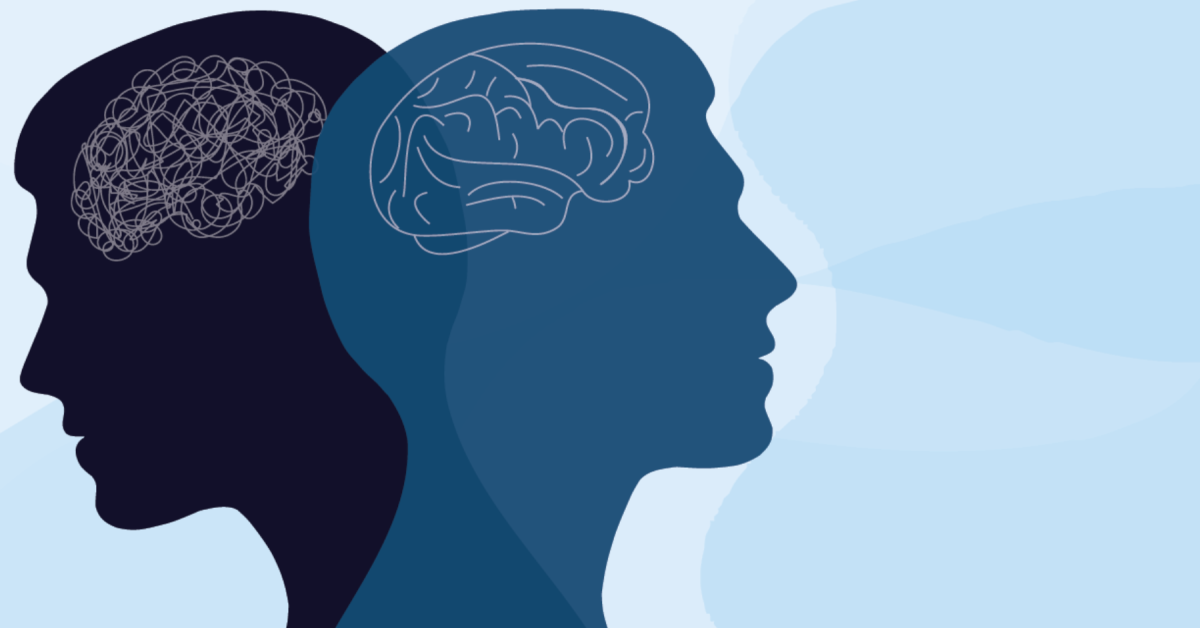Reliable Mental Health Services: Solutions for every single Scenario
Reliable Mental Health Services: Solutions for every single Scenario
Blog Article
Discovering the Connection Between Nourishment and Mental Health And Wellness Renovation
The ramifications of our nutritional selections on psychological health have been increasingly acknowledged by wellness specialists and researchers alike. As we browse the complicated landscape of modern way of lives, discovering the nuanced relationship between nourishment and psychological health enhancement might hold the secret to unlocking a much deeper understanding of our psychological and cognitive durability.
Impact of Food on State Of Mind
The connection in between dietary choices and mood policy is a critical facet of recognizing the effect of food on mental health. Study has actually shown that particular foods can affect neurotransmitter activity, impacting state of mind and emotions. Foods abundant in omega-3 fatty acids, such as fatty fish, walnuts, and flaxseeds, have been linked to reduced rates of depression and boosted state of mind regulation.
Furthermore, complicated carbohydrates found in whole grains, fruits, and veggies can aid control blood glucose levels, which in turn can have a positive impact on mood stability. On the various other hand, diets high in refined foods, sugar, and hydrogenated fats have been connected with a boosted risk of depression and mood conditions.
Additionally, the gut-brain connection plays a substantial role in state of mind law. The digestive tract microbiome, affected by the foods we consume, can connect with the mind with the gut-brain axis, influencing mood, tension degrees, and total mental health. Making nourishing and mindful dietary options is vital for keeping a healthy and balanced and balanced mood.

Important Nutrients for Stress And Anxiety

Additionally, the amino acid tryptophan, discovered in foods like turkey, eggs, and nuts, is a forerunner to serotonin manufacturing, a neurotransmitter understood for its role in advertising sensations of calmness and health. Vitamin B facility, especially B6 and B12, are also crucial for maintaining a healthy nerves and might help reduce anxiety signs and symptoms.
Including these crucial nutrients into a well-balanced diet plan can have a favorable impact on taking care of anxiousness and enhancing general psychological wellness.
Dietary Approaches for Clinical Depression

One nutritional method for taking care of depression is concentrating on foods rich in omega-3 fatty acids, such as fatty fish, flaxseeds, and walnuts. Omega-3 fats have actually been sites linked to decreasing inflammation in the brain and boosting natural chemical function, which can positively impact state of mind. Furthermore, raising the usage of fruits, vegetables, whole grains, and lean proteins while lowering the consumption of processed sugars and foods might aid in alleviating depressive signs and symptoms.
Moreover, keeping sufficient levels of vitamin D, either with sunlight exposure or supplementation, is vital for sustaining psychological health and wellness. Vitamin D deficiency has been linked with an enhanced threat of anxiety, making it essential to ensure enough intake of this nutrient. By incorporating these dietary strategies, people might effectively enhance traditional therapies for anxiety and enhance their general wellness.
Gut-Brain Axis and Mental Health And Wellness
Concentrating on the elaborate connection in between the stomach system and mental wellness, the Gut-Brain Axis plays a critical role in affecting cognitive features and psychological wellness. The Gut-Brain Axis is a bidirectional interaction network in between the main anxious system and the enteric nerve system, linking the cognitive and emotional centers of the mind with outer intestinal functions. This axis is managed by a complex interaction of my link neural, immune, endocrine, and metabolic pathways.
Research study recommends that the make-up of digestive tract microbiota, the varied neighborhood of microbes residing in the stomach system, can have an extensive effect on mental wellness. Discrepancies in gut microbiota, called dysbiosis, have been associated with problems such as depression, stress and anxiety, and even neurodegenerative conditions. Additionally, the digestive tract microbiota plays a critical duty in the manufacturing of neurotransmitters like serotonin, which is vital for controling mood and emotional responses.
Keeping a healthy digestive tract microbiota with a well balanced diet regimen abundant in fiber, fermented foods, and probiotics is important for sustaining mental health (Mental Health Services). Strategies targeted at maximizing the Gut-Brain Axis supply promising opportunities for boosting emotional wellness and cognitive feature
Nourishment's Function in Cognitive Function
Given the substantial impact of the Gut-Brain Axis on mental health, recognizing just how nutrition influences cognitive function ends up being paramount in promoting total health. Nourishment plays a crucial role in cognitive feature by offering crucial nutrients that sustain brain health and optimal performance.
Key nutrients such as omega-3 fats, vitamins, minerals, and anti-oxidants are understood to boost cognitive capabilities, consisting of memory, focus, and problem-solving skills. Omega-3 fatty acids, located in fatty fish like salmon and nuts, have been linked to enhanced memory and cognitive function. Antioxidants, plentiful in vegetables and fruits, assistance secure mind cells from damage triggered by cost-free radicals, hence preserving cognitive feature.
Moreover, a well balanced diet regimen rich in entire grains, lean proteins, fruits, and veggies can positively impact cognitive function by maintaining blood sugar levels and giving continual energy to the mind. On the other hand, diets high in refined foods, saturated fats, and sugars have been connected with cognitive decline and damaged brain function. Consequently, making notified dietary choices is essential for preserving ideal cognitive function and general psychological health.
Final Thought
In verdict, the partnership between nourishment and psychological health is diverse and intricate. Comprehending the connection in between nourishment and psychological health and wellness improvement is important for promoting overall health and attending to psychological health and wellness concerns.
The ramifications of our dietary options on mental health have been increasingly acknowledged by health experts and scientists alike. As we navigate the facility landscape of modern lifestyles, discovering the go now nuanced relationship between nutrition and psychological health renovation might hold the secret to opening a much deeper understanding of our emotional and cognitive resilience.
Structure upon the crucial nutrients that sustain mental health and wellness, particularly in handling anxiety problems, the emphasis currently shifts in the direction of checking out nutritional strategies for attending to anxiety.Focusing on the complex connection between the intestinal system and psychological wellness, the Gut-Brain Axis plays a pivotal function in influencing cognitive functions and emotional wellness (Mental Health Services). Recognizing the link in between nourishment and psychological wellness renovation is essential for promoting overall wellness and dealing with mental health problems
Report this page